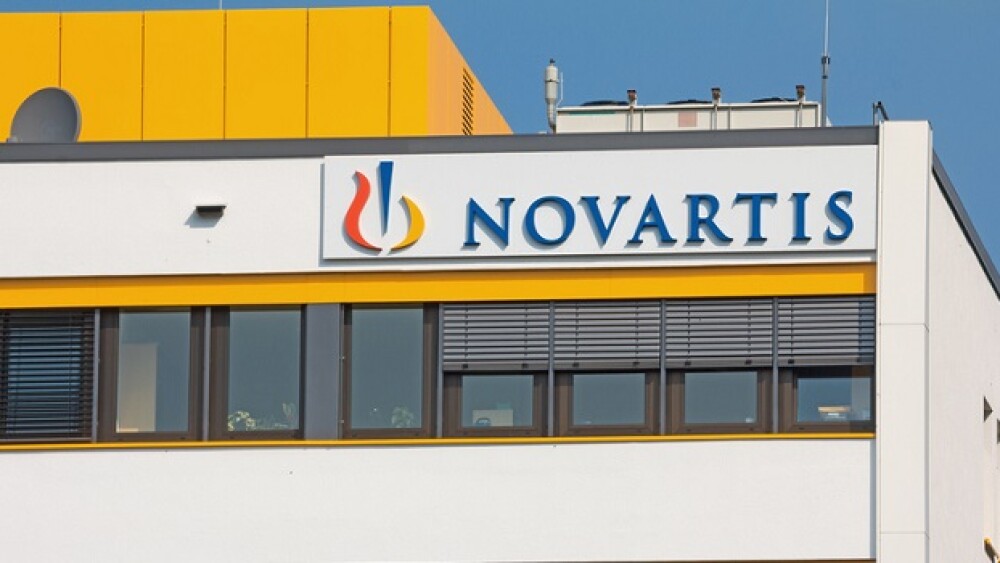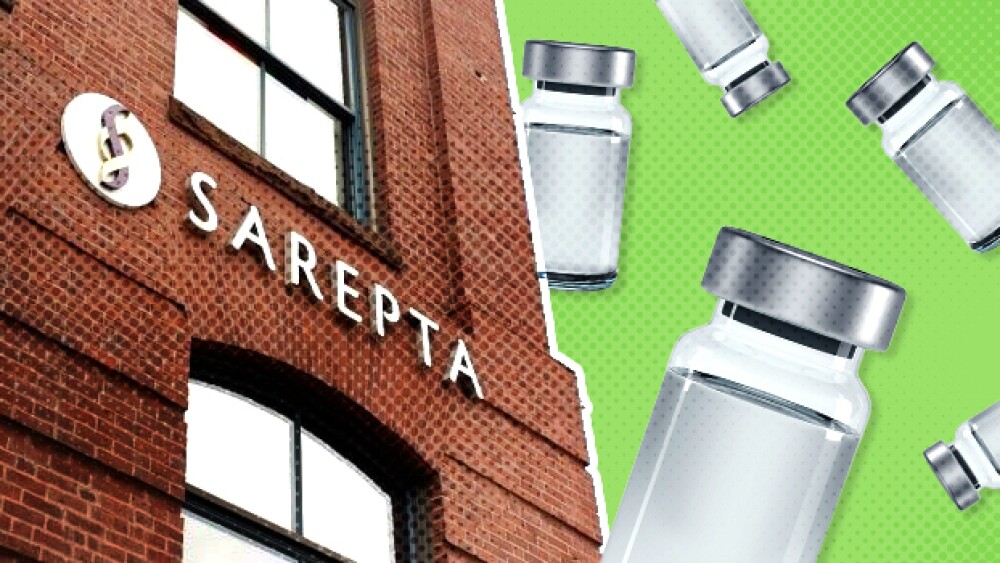Under the terms of the agreement a Phase I clinical study of AT9283 in children and adolescent patients with relapsed or refractory solid tumours will be conducted through the Cancer Research UK’s Drug Development Office in collaboration with the Children’s Cancer and Leukaemia Group and a further clinical study of AT9283 in children and adolescent patients with haematological malignancies is also planned. Astex retains all commercial rights to AT9283 and has already completed one Phase I trial with the compound in adult patients with solid tumours and another Phase I trial using an alternative dosing schedule in patients with solid tumours is ongoing. In addition, AT9283 is showing early signs of clinical activity in a further Phase I/II trial in adult patients with haematological malignancies.
“Our proprietary compound, AT9283 is the most potent dual Aurora/JAK inhibitor currently in development and has demonstrated early evidence of efficacy in patients with both epithelial cancers and leukaemias”, said Harren Jhoti, Chief Executive Officer of Astex. “We have received a lot of interest in the potential of this compound as a novel treatment for a range of cancers and we welcome the opportunity of working with Cancer Research UK on these important clinical studies in young people with very serious diseases.”
Dr Sally Burtles, director of drug development at Cancer Research UK, said, “Finding new treatments for children’s cancers is one of our top priorities so we are very excited to be joining forces with Astex to develop this compound. There is an urgent need to find new treatments for children who don’t respond well to current therapies so we await the results of this trial with interest.”
Astex Therapeutics
Astex is a UK-based biotechnology company that discovers and develops novel small molecule therapeutics. Using its pioneering fragment-based drug discovery platform Pyramid™, Astex has built a pipeline of five molecularly-targeted oncology drugs, of which three are currently being tested in clinical trials and two are in pre-clinical development. In addition to its proprietary research programmes, Astex’s productivity in lead discovery has been endorsed through numerous partnerships with major pharmaceutical companies, including AstraZeneca, Bayer-Schering, Boehringer Ingelheim, Novartis and Johnson and Johnson.
For further information on Astex please visit the Company’s website at www.astex-therapeutics.com
About AT9283
Aurora kinases have been demonstrated to be over-expressed in several high risk cancers that occur in children and adolescents including; malignant glioma, medulloblastoma, neuroblastoma and acute myeloid leukaemia. AT9283 is a small molecule inhibitor of Aurora kinases A and B, with potent activity also against c-ABL and JAK2. Exposure of cancer cell lines to AT9283 resulted in endoreplication leading to a polyploidy state and cell death by apoptosis. Preclinical activity has been studied in xenografts of colorectal (HCT116), ovarian (A2780) carcinoma and leukaemia (Hl60). Tumour growth delay and regressions were observed with an intermittent dosing schedule. Histone H3 phosphorylation has been demonstrated as an effective biomarker of AT9283 Aurora kinase B activity. Preclinical toxicity studies confirmed myelosuppresion as the main dose limiting toxicity. Ongoing Phase I studies in adults have further defined the safety and tolerability of AT9283.
Inhibitors of Aurora kinases, such as AT9283, represent attractive novel anti-cancer targets for a broad range of solid and haematological malignancies as evidenced by anticancer activity in tumour models and emerging early clinical data in adults. This class of agent has demonstrated significant activity in a broad range of paediatric xenografts models including; ALL, neuroblastoma, Wilms tumor, rhabdoid tumor, rhabdomyosarcoma, Ewing sarcoma, osteosarcoma, and medulloblastoma. AT9283 is a potent inhibitor of Aurora Kinases A & B as well as JAK2 and has been found to be well tolerated in adult solid and haematological cancer patients using an intravenous 72 hour infusion on a 21 day schedule. Furthermore, in an ongoing Phase I clinical trial, AT9283 has demonstrated early signals of efficacy in approximately one third of adult patients with relapsed/refractory Acute Myeloid Leukemia. In the absence of significant non-haematological toxicity in adult patients, a Phase I trial of the agent in children with refractory malignancy is therefore justified.
About Cancer in Children
According to the UK Office for National Statistics, cancer is very rare in children. Only around 1 in 200 (0.5 per cent) of all cancers occur in children aged under 15 years. The incidence of childhood cancer has not changed very much over the past 40 years. In 2000, there were around 1,400 new cases diagnosed in Great Britain. However, cancer accounted for around 20 per cent of all deaths in children aged 1 to 14 years. The National Cancer Institute reports approximately 10,400 children under age 15 were diagnosed with cancer in the United States in 2007 and about 1,545 children will die from the disease.
About one third of all childhood cancers are leukaemias. About 80 per cent of all leukaemias are acute lymphoblastic leukaemia (ALL). Around a quarter of all childhood cancers are brain and spinal tumours; while 15 per cent of cases are embryonal tumours (neuroblastoma, retinoblastoma, Wilms’ tumour and hepatoblastoma). Lymphomas account for just under 10 per cent of all childhood cancers.
Since the 1960s, there have been great advances in the treatment of most childhood cancers, resulting in markedly higher survival rates. By the mid-1990s, nearly 75 per cent of children with cancer survived at least five years after diagnosis (known as five-year survival). For the main type of childhood leukaemia, five-year survival was above 80 per cent, and exceeded 50 per cent for every main type of childhood cancer.
About Cancer Research UK's Drug Development Office
Cancer Research UK has an impressive record of developing novel treatments for cancer. It currently has a portfolio of almost 50 new anti-cancer agents in preclinical development, Phase I or early phase II clinical trials. Since 1982, the Cancer Research UK Drug Development Office has taken over 100 potential new anti-cancer agents into clinical trials in patients, five of which have made it to market and many others are still in development. These include temozolomide, a drug discovered by Cancer Research UK scientists, that is an effective new treatment for brain cancer. Six other drugs are in late development phase III trials. This rate of success is comparable to that of any pharmaceutical company.
About the Children’s Cancer and Leukaemia Group
Cancer Research UK is the major funding provider of the Children's Cancer and Leukaemia Group and funds the UK clinical trials work of the group in 21 paediatric centres throughout the British Isles. The Children's Cancer and Leukaemia Group is the national professional body responsible for the organisation, treatment and management of virtually all children with cancer in the UK. The group is acknowledged as one of the world's leading childhood cancer clinical trial groups who have made a significant contribution to the international success in treating childhood cancer, resulting in improvements in survival.
About Cancer Research UK
• Together with its partners and supporters, Cancer Research UK's vision is to beat cancer.
• Cancer Research UK carries out world-class research to improve understanding of the disease and find out how to prevent, diagnose and treat different kinds of cancer.
• Cancer Research UK ensures that its findings are used to improve the lives of all cancer patients.
• Cancer Research UK helps people to understand cancer, the progress that is being made and the choices each person can make.
• Cancer Research UK works in partnership with others to achieve the greatest impact in the global fight against cancer.
For further information about Cancer Research UK's work or to find out how to support the charity, please call 020 7009 8820 or visit www.cancerresearchuk.org.




